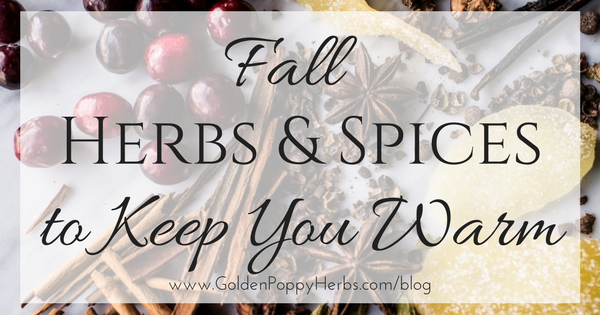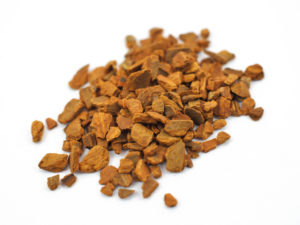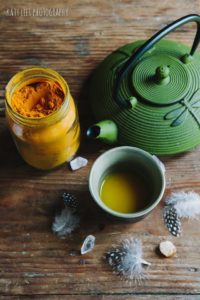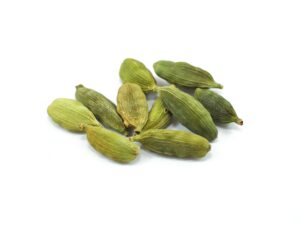
Fall has officially arrived with the recent Autumn Equinox and we are entering the season of harvest and abundance. Traditionally, in some cultures, the Autumn Equinox marked a time of inward reflection, introspection and change. To assist this natural cycle, warming and nourishing foods and herbs were often celebrated at this time of year for their ability to build and strengthen all body systems going into colder months.
Fall harvest time rewards us with a variety of vegetables including beets, potatoes, and squash that all contain high nutrient and complex carbohydrate content. Then, of course, there are fall favorites like pumpkins and apples, along with warming, spicy herbs! What better time to cozy up with your favorite book, (or favorite Netflix show) sipping on a tasty brew of Spiced Cider, Chai or Golden Milk!!
This special time of year is one of the best to experiment with spicy, warming herbs like Cinnamon, Ginger, Turmeric, Cardamom and Allspice in cooking or herbal teas. Many of these highly aromatic, warming herbs contain chemical compounds, especially in their volatile oils, that have a wide array of physiological effects. They can stimulate cardiovascular function, relax nervous system function, boost the immune system and aid in promoting healthy digestion-- All while warming the body and soul!
TREAT YOURSELF THIS FALL SEASON BY ADDING THESE TASTY AND HEALING HERB/SPICES INTO YOUR DIET AND LIFE.

Cinnamon- (Cinnamomum spp.)
*Cinnamon is highly aromatic and one of the best warming herbs/spices there is! Cinnamon stimulates circulation, and is highly anti-inflammatory. It also increases healthy digestive fire, helps an upset stomach, and feelings of nausea. It also lowers blood sugar and cholesterol levels, and helps promote healthy weight management. Consider adding Cinnamon to cider, chai, Mexican Hot Chocolate, applesauce, apple pie, pumpkin pie, and chili.
Turmeric (Curcuma longa)

Turmeric is primarily known for it’s anti-inflammatory action, specifically for joint and chronic pain conditions. It’s also a great digestive herb that protects against ulcers. Curcumin, the main active constituent in Turmeric, increases blood flow and strengthens cardiovascular function while also helping to support the liver and healthy detox processes. It has been shown that adding a small amount of black pepper along with Turmeric significantly increases the absorption rate and the bioavailability of curcumin in the body. Add turmeric to soups, stews, Indian or Thai curries, Chai, and Golden Milk.
 Ginger (Zingiber officinalis)
Ginger (Zingiber officinalis)
Ginger is one of the most important herbs used during colder fall and winter months. It warms and rejuvenates, stimulating proper circulation. It also helps at the onset of colds and flus by reducing body temperature and encouraging healthy toxin release. It helps digestive upset by relaxing smooth muscle around arteries, and allows warm blood to move from the core out to the periphery. Other benefits of Ginger include its use for nausea, indigestion, cramps, motion sickness, vertigo and morning sickness. Consider using Ginger in tea with lemon, ginger ale, kombucha, Chai, Golden Milk, in sauces, smoothies, cookies, salad dressings, miso or soup.
Cardamom (Eelettaria cardamomum) 

This is another warming digestive herb that freshens breath, promotes appetite and improves digestive and liver function. Cardamom can be added to blends to improve circulation or to clear sinuses and air passageways. Cardamom is also safe and effective for morning sickness. Consider using Cardamom in tea, Chai, bread, sweets or soups.
There are also important lifestyle habits that you can adopt in fall that can help as we move into colder winter months. Fall is one of the best times to begin boosting immune system function and implementing healthy eating habits in order to avoid catching colds and flus later in the season.
HERE ARE SOME OTHER TIPS FOR SUPPORTING THE IMMUNE SYSTEM DURING THIS TIME OF YEAR:
Root vegetables including beets, winter squash, sweet potatoes and bell peppers contain carotenoids, particularly beta-carotene that helps build Vitamin A and supports healthy immune function overall. Consider consuming these throughout the season!
Fermented Foods, Healthy Fats and Fluids: The gut is highly connected to immune function. In fact, about 70% of our immune cells are located in the small intestines. Kombucha, kimchi, sauerkraut, and fermented foods can help support healthy bacteria that builds immune function. Healthy fats also coat the intestines and support healthy immune cell functioning.
Vitamin C: Is known to help protect the integrity of immune cells. It is helpful in small doses on a regular basis. Useful in large doses when sick only for a short period of time. Natural Vitamin C sources include citrus fruits, rosehips and and some berries.
Bone Broth: A mineral rich broth that is similar to a homemade chicken noodle soup. It is rich in essential vitamins and minerals as well as amino acids. This broth can help nourish and restore overall health and vitality. A vegetarian high mineral/nutrient rich broth can be made with Nettle, Burdock and mushrooms like Reishi.
RECIPE CORNER:
Golden Milk
- Coconut Milk 2 cups
- Fresh Ginger 1 TBSP
- Fresh Turmeric 1 TBSP (or 2 tsp dried powder)
- Cinnamon 1/4 tsp
- Clove 4 whole cloves
- Black Pepper ⅛ tsp
- Cardamom a dash (optional)
- Honey (About a TBSP)
Bring coconut milk, ginger and Turmeric to boil, then add all spices and simmer for 5-10 minutes. Strain, then add honey to taste! Enjoy during cold fall or winter nights to warm up!
References:
- ‘Body Into Balance’ by Maria Noel Graves
- ‘Herbal Trends and Traditions’ by Charles Kane
- ‘The Wild Medicine Solution’ by Guido Mase



